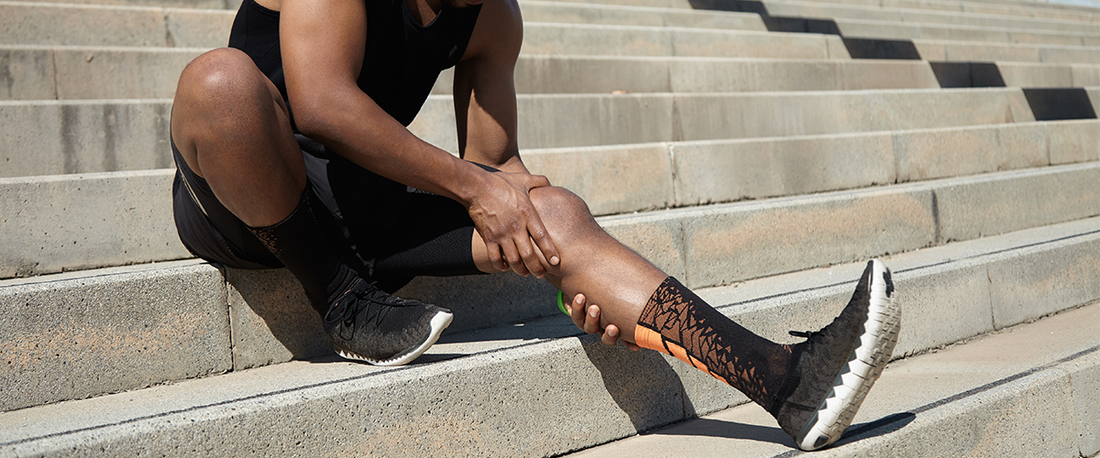What are the rewards of a good workout? A stronger body? Check. A healthier heart? Check. Aching muscles? Check. Check. And double-check.
Thighs that throb, calves that cramp, and backs that beg for mercy. It’s enough to make you throw in your gym towel. But don’t you dare! Healthy exercise is too important to let a little thing like temporary muscle pain stop you. After all, you’re on a mission toward a longer, stronger life.
All you need are some super, pain-soothing remedies. Look no further than your very own kitchen for fast relief from everyday twinges and minor sports injuries.
When you’re feeling the aches, pains, and swelling of overtaxed muscles, they might be crying out for vitamin C. This superstar of the vitamin world helps produce and maintain collagen, a protein that builds and repairs cartilage, ligaments, muscles, and bones. As a champion antioxidant, C also has the power to heal those injured muscles and inflamed tissues.
Some experts say to take 500 milligrams (mg) of vitamin C four times a day when you’re nursing an injury. To prevent everyday soreness, take 500 mg right before you exercise.
Follow up a hike with a turkey sandwich, and your muscles will recover and heal faster. It’s the leucine in turkey that really makes a difference. An essential amino acid, leucine is one of the vital building blocks of protein. In fact, it’s in charge of building muscle protein.
You’ll find this crucial muscle fuel in lean meat, dairy foods, some sports drinks, and protein bars. But the key is to get leucine right after — not before or during — your workout.
To get more out of leucine, wash your snack down with a carbohydrate-rich fluid, like juice or a sports drink.
A warm, soothing soak can be just the ticket for sports injuries or everyday aches and pains. Here’s one recipe for relief.
Blend all ingredients in a coffee grinder, then mix into a tub of warm water and soak for 15 to 20 minutes. Bay leaves and marjoram are known for stimulating circulation and soothing achy muscles.
Remember, though — an herbal soak can’t substitute for a doctor’s care if you are injured, so seek help for swelling or bruising.
Caffeine could be preventing your body’s natural pain fighters from doing their job. It lowers levels of “feel good” chemicals called endorphins, and boosts the amount of epinephrine in your body, a compound that can make the nerves inside your muscles more sensitive to pain. On top of that, caffeine flushes calcium out of your body. This lowers the mineral content of your bones and makes them more prone to microfractures. These tiny breaks in your vertebrae can, over time, cause chronic back pain.
Consider cutting the two top sources of caffeine — coffee and soft drinks — from your diet and see if it helps.
To find out which common beverages have the most caffeine, click here.
Trainers at the University of Alabama have the most sophisticated sports medicine equipment and techniques at their disposal. But when treating their champion athletes for painful muscle cramps, they often offer just a squirt of mustard in a cup of water. It works wonders!
Though there’s not a lot of research to back this up, experts think vinegar in mustard is what helps. The next time you’re working out, bring along a few packets of mustard. When a cramp strikes, slurp down the contents of one packet with some water. Repeat in about two minutes.
6. Drink away the #1 cause of muscle spasms
Dehydration can cause dizziness, constipation, confusion, fatigue, and — surprisingly — muscle cramps. In fact, it’s probably the most common cause of muscle cramps — and the easiest to prevent. All you have to do to sidestep dehydration is drink, drink, drink.
How much water do you need? One common guideline is eight 8-ounce glasses of water a day. But some experts question that recommendation. That’s because you get much of the water you need from food and other beverages. Fruits and vegetables, like watermelon and tomatoes, provide a lot of water. So do milk, juice, and even caffeinated beverages like coffee, tea, and soda.
Click here to see a surprising list of vegetables high in water.
Just be sure you boost your water intake in hot and humid weather, when you exercise, and when you’re sick.
If you’re truly dehydrated, you may be running low in important minerals like potassium, magnesium, and calcium. And plain old water won’t replenish these. For more potassium, eat bananas, dried apricots, figs, or a ripe avocado. Try eating almonds, cashews, apricots, whole grains, or greens to raise your magnesium level. And dairy products, turnip greens, sardines, and oysters are great sources of calcium.
Take the edge off the excruciating pain of a charley horse with a cup of tonic water. This fizzy drink contains almost 30 mg of quinine, which could be enough to get the job done. Try spritzing it with lemon or orange juice to zip up the flavor. But be careful — too much quinine can cause serious side effects like diarrhea, nausea, stomach cramps, or vomiting. So if one cup of tonic water doesn’t work, move on to another remedy.
Behold the amazing microwavable heat pad! Make your own with a soft cotton sock or a small pillowcase filled with uncooked rice. Sew it closed, then pop it in the microwave for a minute or two. This warm pouch is perfect for soothing sore muscles at the end of the day or warming cold feet at night.
SOURCES:
http://jasn.asnjournals.org/content/19/6/1041
Negoianu, Dan and Goldfarb, Stanley. “Just Add Water.” Journal of the American Society of Nephrology; June 2008,19 (6), 1041-1043.
http://news.bbc.co.uk/2/hi/health/7466457.stm
Hughes, Jane, “How care home keeps elderly healthy.” BBC; June 23, 2008.
http://www.ncbi.nlm.nih.gov/pubmed/12376390
Valtin, H., ”Drink at least eight glasses of water a day." Really? Is there scientific evidence for "8 x 8”?.” Am J Physiol Regul Integr Comp Physiol. 2002 Nov; 283(5):R993-1004.
